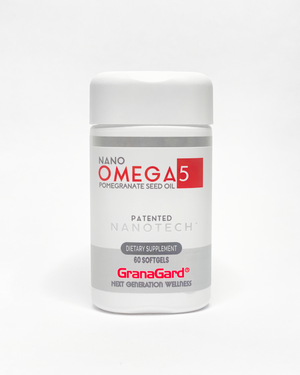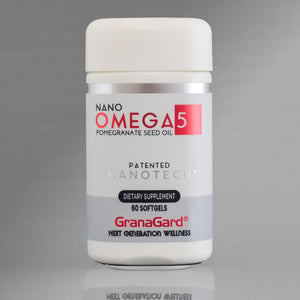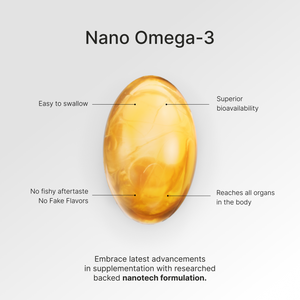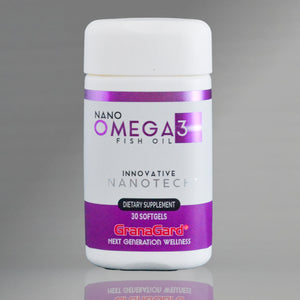Analyses from a study conducted comparing the memory of a group of people who took antioxidants with another that only took a placebo showed that after four months, memory test results were significantly better in the group that received antioxidant supplements compared to the placebo group. At the beginning of the study (without antioxidants or placebo), both groups had similar results.
What is short-term memory

Short-term memory allows us to retain a small amount of information for a limited time, for example, when taking a memory test. We have other types of memory such as working memory, which allows us to perform actions in the correct sequence according to received instructions, and long-term memory, which allows us to remember the music that was playing on our graduation day. Regardless of the types of memory, short-term memory serves as the gateway to others. If we can't remember the conversation we had 10 minutes ago, it doesn't make sense to think we could remember it a week later. When we study, we are in the process of converting short-term memory (what we saw in class, what we read) into long-term memory.
What affects memory
Although there are controversies about which factors affect different types of memory, reality shows us that all types of memory can be altered by the same factors; the difference is that the damage becomes more evident in one type of memory than another. Take Alzheimer's, for example, which is said to affect short-term memory because the person remembers things that happened 10 years ago but not what happened 10 minutes ago. This is because memories from 10 years ago were formed before the disease, but unfortunately, the Alzheimer's patient is unable to form new long-term memories. Memory can be affected by many factors, some obvious like neurodegenerative diseases, others cognitive like attention and concentration; also nutritional status, present systemic pathologies, hydration status… which we tend to correct for the discomfort they cause, not for memory. But there is a condition that is very silent, causes a lot of damage to memory, and by the time we realize it, there may be irreversible damage; this is oxidative stress. (Oxidative stress: myth or reality) What is oxidative stress The normal metabolism of each cell produces free radicals and ROS (Reactive Oxygen Species). Both are like a kind of residue left over from reactions occurring within our body, and if not neutralized, they can damage other components within cells. To neutralize these harmful agents and maintain balance, we have an internal antioxidant system. This balance is essential for life; however, when there is an excess generation of ROS and free radicals (the harmful agents) that exceed the capacities of the internal antioxidant systems, oxidative stress occurs, which is associated with the development of diseases that exhibit high morbidity and mortality.
How oxidative stress affects the brain and memory
The brain consumes 20% of all the oxygen we breathe and also has a high metabolic rate (the process where ROS and free radicals are generated), making it the organ most at risk of suffering from oxidative stress. Numerous studies indicate an increase in oxidative damage associated with early cognitive impairment in patients with Alzheimer's disease. For memory formation, changes in synaptic plasticity are required, meaning the ability to establish new connections between neurons responsible for that new memory. A synapse is the connection of two neurons, allowing them to communicate. When we receive a stimulus, for example, a pinch on a finger, that stimulus is picked up by a specialized neuron that transmits it to another, and another, and another, until it reaches the brain at specialized centers that make us aware that we received a pinch. The communication points of the different neurons involved are the synapses. The concept of neural plasticity or neuroplasticity refers to the connections of neurons in our brain being able to strengthen or weaken. For memory, neuroplasticity is necessary. Imagine a learning process… Today you acquire new knowledge on a specific topic, forming new connections between neurons; tomorrow you learn new things about the same topic, requiring you to remember what you learned today. This, in addition to forming new connections for the new knowledge of tomorrow, will reinforce those formed today by having to remember that knowledge. So far, research has shown that oxidative stress (Oxidative stress: myth or reality) affects neuroplasticity and synaptic function. Neuronal mitochondria (the small organelles within them that supply energy) play a fundamental role in neuroplasticity. In them, due to their metabolic activity, the highest amount of ROS is produced, which, when not properly neutralized, generate mitochondrial dysfunction, hindering the appearance of new neuronal synapses because there is no energy to form them. Other studies have pointed out that oxidative stress can directly affect synaptic function; meaning that even if the synapse is established, it may not function properly.
Why protect our brain and memory with antioxidants

The identification of free radical reactions as promoters of the mentioned alterations implies that intervention should aim to restore balance: limiting, inhibiting, or reducing the number of free radicals; or increasing our body's antioxidant capacity. There are two experiences demonstrating how antioxidant supplements can quickly help memory. In the first study, 113 mentally and cerebrally healthy people were randomly assigned to two groups, one of which would receive antioxidant supplements, and the second group a placebo (a capsule identical to the supplement but without the antioxidant). The NLT 50 (Names Learning Paired Association Test) and the 20 WRT (20 Word Recall Test) memory tests were performed. Two measurements were taken: at the beginning of the study and after four months of receiving their respective daily medication (antioxidant or placebo). The results showed a significant improvement in both tests' results only for the group that received the antioxidant supplement (What are antioxidants and how do they work) as a dietary complement. The second study had a similar design, but in this case, there were 63 healthy adults aged 50 to 75 years; the comparison was not against a placebo but against one of the best-selling multivitamins for those ages. As for the tests, the NLT 50 was replaced by the NLT 100, meaning more items to remember and greater difficulty. The 20 WRT was similar. The number of evaluations was also increased to 4: at the beginning of the study, at one month, at three months, and at six months. From the first month, a significant improvement in the test results was found in the group that received antioxidant supplements, an improvement that was not present in the group of people who received the multivitamin, not even in the fourth evaluation performed at six months.
What are new generation antioxidants
The antioxidant supplements used in these experiences had a major obstacle: crossing the blood-brain barrier, the set of membranes that protect our brain and central nervous system from any substance circulating in the bloodstream. Nanotechnology (What is Nanotechnology in simple terms) has made it possible to convert a potent natural antioxidant like Omega 5 (What are the benefits of Omega 5) into a nanoemulsion. This not only reduces its size to a nanometric scale but also gives it both water-soluble and fat-soluble characteristics, meaning it can dissolve in water or oil, respectively, making it practically capable of crossing all barriers and reaching the necessary levels to exert a more effective antioxidant action. The best way to improve our memory is to start with the basics: develop healthy habits like getting enough sleep, avoiding a sedentary lifestyle, exercising regularly, eating a healthy diet, and supplementing with the best antioxidant: one that is natural, neutralizes free radicals and ROS, stimulates the production of internal antioxidants, and can reach the brain to protect it. Nano Omega 5 from GranaGard® is all that and much more.





